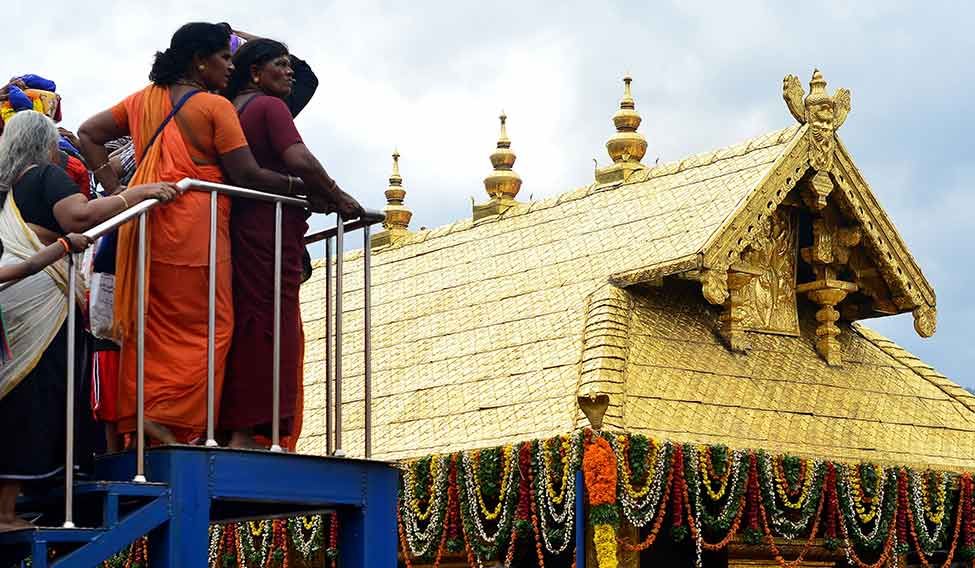In Kerala, which has been convulsing since the Supreme Court struck a raw nerve of a popular system of belief at the hill shrine Sabarimala, broader social change has been mooted. Communities such as the Mala Arayas, a tribe that claims ownership of the deity and the practices associated with Ayyappan, are seeking restoration of their rights and rituals at the temple. They also want 50 per cent of jobs associated with the temple administration to be reserved for members of the community. There are several other narratives that are being built and popularised even as people of the state, which has barely emerged from devastating floods just a couple of months ago, are grappling with the apex court verdict and its implementation. On one side there is the government which claims it is helpless in the situation as it is duty-bound to implement the Supreme Court order. On the other is a sizeable section of people who want the belief to be upheld over a fundamental right. They point to the state’s haste in implementing the verdict, even as it has been procrastinating over other verdicts that pertain to other religions. They see an inequality in the implementation of law despite the government’s stated stand that it has no other go. The government has also made it clear that it fears the Centre would remove it from power if it were to go against the Supreme Court verdict. The Kerala High Court has also seen complaints being filed by individuals seeking changes pertaining to temples and places of worship of other religions. The Kerala High Court Monday dismissed a plea seeking that entry of members of all faiths to the Sabarimala temple be banned, by enforcing Rule 3(a) under the Kerala Hindu Places of Public Worship (Authorisation of Entry) Act, 1965. Earlier it had dismissed a writ petition praying that Muslim women be allowed entry into mosques. The Supreme Court verdict has given rise to several questions that remain unanswered. Different political dispensations are keeping the issue alive for their own vested interests. A couple of vehicles parked on the premises of an ashram being run by a new-age spiritual teacher Swami Sandeepanandagiri were set afire, it is suspected, by Hindu radicals. But questions are also being raised about the attack as the CCTV system at the ashram had reportedly been switched off and the swami’s assistant was sent on leave just a couple of days prior to the incident. The fact that the incident coincided with BJP President Amit Shah’s visit to the home district of Kerala’s chief minister Pinarayi Vijayan added credence to the possibility of the attack on the swami to be one initiated by communal forces. Kerala is at a crossroads. The people of the state may have to take a very tough decision: Whether to adopt a path of understanding or one dictated by emotion and pigheadedness. Some claim the Supreme Court may have inadvertently sown the seeds of discord in a state that has prided itself in its progressive disposition. However, this progressiveness has been proven skin deep. Those who did not know the details of the Sabarimala gender bias were shocked to discover the strong underlying patriarchal tilt. The Malayalis now have to prove that they are not only hard workers in the Middle East but also educated and sensitive towards their own people.
Chance to prove

- Categories: Edit
- Tags: editorialORISSA POST
Related Content
Teeth To NOTA
By
Post News Network
April 29, 2024
Communal Speech
By
Post News Network
April 28, 2024
Wheels of Discord
By
Post News Network
April 27, 2024
Dragon’s Dilemma
By
Post News Network
April 24, 2024
A Promising Start
By
Post News Network
April 23, 2024
Corporate Racism
By
Post News Network
April 22, 2024